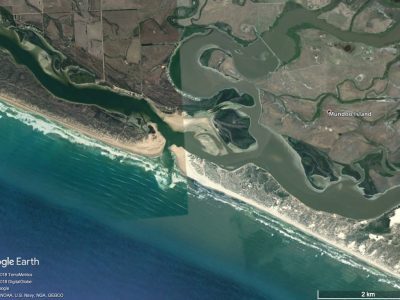Murray-Darling Basin Royal Commission

The South Australian Government has established a Royal Commission to examine various aspects of the management and governance of the Murray-Darling Basin. Details can be obtained on the Commission’s website, www.mdbrc.sa.gov.au including terms of reference, issues papers, submissions, hearings and transcripts of hearings.
I was privileged this past week to participate in two full days of hearings in Adelaide before Commissioner Bret Walker SC with colleagues from the Wentworth Group of Concerned Scientists (Peter Cosier, Jamie Pittock and Celine Steinfeld). We were invited to speak to our submission (no.79) as well as other material produced by the Wentworth Group (WG) since we were established in 2002. The submission reflected our long-standing concerns over the management of water in the Murray-Darling Basin (MDB) affecting not just the environmental health of this vast interconnected river system, but also the livelihoods of people who depend upon it now and into the future. Some of these concerns are also evident in the Commonwealth Water Act 2007 with its reference to over-allocation and overuse of water resources in the MDB. The Act allowed for the formation of a Basin Plan, the subject of review by this Royal Commission.
One of the matters of concern to the Wentworth Group relates to the health of the end-of-system, referred to as CLLMM (Coorong, Lower Lakes, and Murray Mouth). This has been of particular interest to me as a coastal scientist in reviewing numerous studies of geology, geomorphology and ecology of the area, in particular estuary evolution at different time scales. However, the interest has broadened to include social and political issues in the management of water that discharges into the CLLMM from both terrestrial and marine sources. The premise is that river systems should not be allowed to die from the bottom up. I have been greatly assisted in learning more about these issues from colleagues such as Nick Harvey, Bob Bourman and Peter Cowell as well as from my Wentworth Group member, Jamie Pittock, and policy analyst Celine Steinfeld. My inquiries have been assisted by staff from the Department of Environment and Water in South Australia. Nick also made a submission to the Royal Commission (no.44).
I will not repeat all the details of the WG submission to the Royal Commission which addresses its Term of Reference 5 (see pages 26-31 of submission no.79). However, it was clear that the Commissioner was interested in several specific issues. One was the reason why there needs to be an open mouth. This responds to the view of those who see water flowing into the sea as “wasted”. This gave me the opportunity to take the Commission through the geological legacy/curse of Oligocene and Miocene deposits in the Basin. The occurrence of salt in these deposits and subsequent accumulations into both ground and river waters is well recognised as a problem for water consumptive use and there must be ways to manage any excessive load. The Basin Plan sees the value in exporting salt through the Murray Mouth and we reinforced this position.
The problem arises as to how to keep the Mouth open. The Basin Plan used a hydrological model to approximate the required river flow for 95% of years. Both in Nick’s submission and that of the WG, it was shown that river flow would not achieve this target without dredging. This view contradicts the provision in s 86AA (2) (c) of the Water Act 2007 and the case was put to the Commission that this clause be amended. We both highlighted the power of the sea in moving sand into the entrance both at current sea levels and with sea level rise. The importance of the Basin Plan incorporating various aspects of climate changed was stressed in the WG submission and at the hearing. This becomes even more relevant as we contemplate the need for river flows in future to prevent lowering of lake levels below sea level behind the barrages as seen in the Millennial Drought.
Public hearings of the Murray-Darling Basin Royal Commission are being held throughout July.
Bruce Thom
Words by Prof Bruce Thom. Please respect the author’s thoughts and reference appropriately: (c) ACS, 2018, posted 12 July 2018, for correspondence about this blog post please email austcoastsoc@gmail.com
#114

